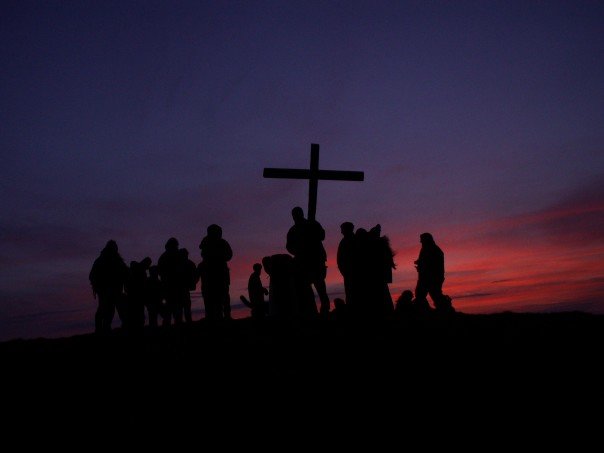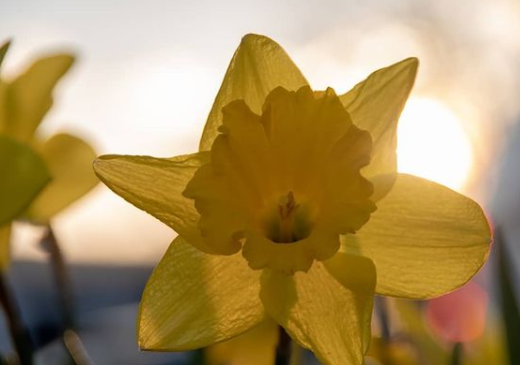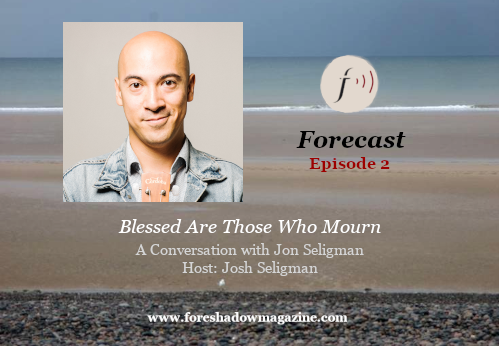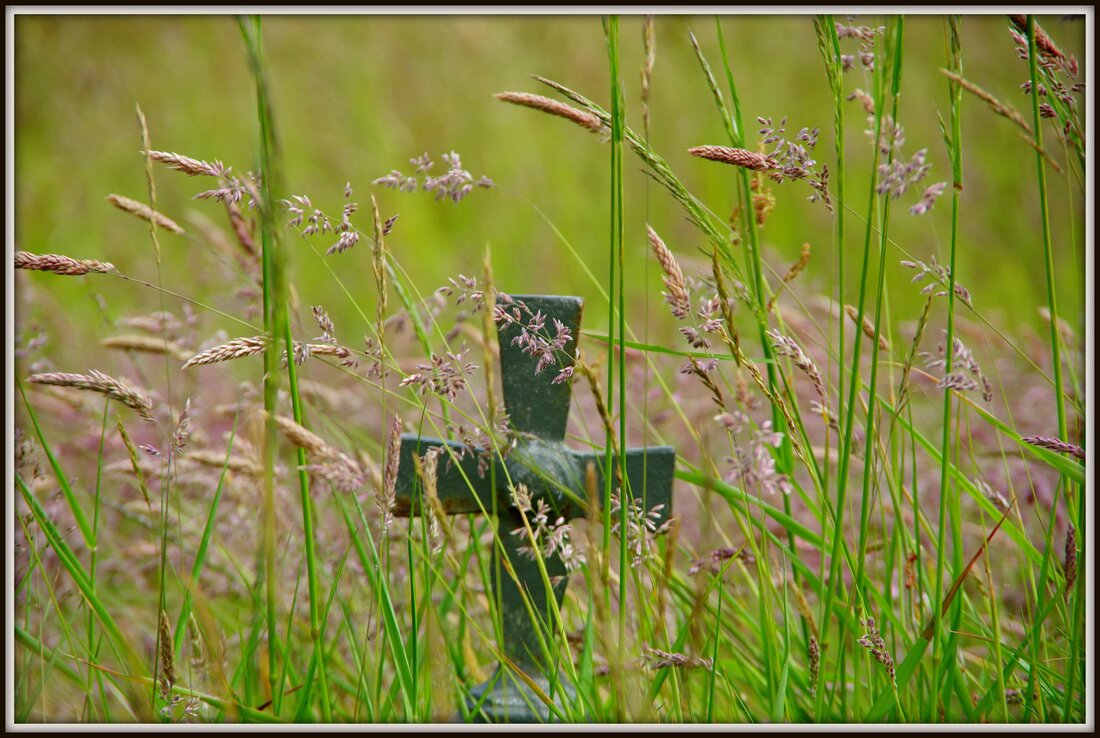|
By Rosemary Power Scripture: On the Sabbath they rested, according to the commandment. (Luke 23:56b) On the empty day the women kept the Law and customs of the people. There was no hope, that Sabbath, no angel marked the day with cloud or fire. Stories started, wandered, withered into silence bereft of laughter. From that day of rest with no rest, of tepid meals because the body must hunger for life longer than the will, came evening and the planning of the funeral rites the day delayed, the preparation, of the words of spice and sweetness that must honour the one we loved and lost. Rosemary Power is a medievalist and writer whose new book Praying with the Book of Kells will be published by Veritas, Dublin, in 2021.
Rosemary's other work on Foreshadow: The Lord of Creation in His Mother's Arms (Art, January 2021) In the Time of Covid-19 (Poetry, March 2021) Other related work previously published on Foreshadow: Blessed Are Those Who Mourn (Interview, March 2021)
0 Comments
By Carl Winderl by his mother I stood un- alone, as Mother of mothers, while the others draped in black, gaped at My Monday mourning blue, in grief united as are our boys eternally, on this so fair and foul a morn whence in uni- Son once below, and on earth him now lies that He might rise as It is in heaven so that at his grave where our mothers’ tears (Mine slid down my other cheek) water the dirt, near his mother’s feet (among women) I lay anon a sad bouquet, so ophelian of pansies, poppies, daisies and of oh, our sweet babies’ breath Carl Winderl holds a Ph.D. in Creative Writing from New York University and maintains a home in San Diego, California.
'At Judas' funeral' is from Carl's new poetry book, The Gospel According. . . to Mary (Finishing Line Press, 2021). Other related work previously published on Foreshadow: The Lord of Creation in His Mother's Arms (Art, January 2021) 'My Song Is Love Unknown' by Samuel Crossman My song is love unknown, my Saviour's love to me, love to the loveless shown that they might lovely be. O who am I that for my sake my Lord should take frail flesh and die? He came from his blest throne salvation to bestow, but men made strange, and none the longed-for Christ would know. But O my friend, my friend indeed, who at my need, his life did spend. Sometimes they strew his way, and his strong praises sing, resounding all the day hosannas to their King. Then 'Crucify!' is all their breath, and for his death they thirst and cry. Why, what hath my Lord done? What makes this rage and spite? He made the lame to run, he gave the blind their sight. Sweet injuries! Yet they at these themselves displease, and 'gainst him rise. They rise, and needs will have my dear Lord made away; a murderer they save, the Prince of Life they slay. Yet steadfast he to suffering goes, that he his foes from thence might free. Here might I stay and sing, no story so divine: never was love, dear King, never was grief like thine. This is my friend, in whose sweet praise I all my days could gladly spend. Samuel Crossman (1623–1683) was a hymnwriter and an Anglican minister.
By Sam Seligman Years ago, I lived in New York City, where I'd share my songs on Monday evenings in Greenwich Village folk clubs. Mondays were open mic nights, when amateurs signed up to perform. Nights in the summer were the busiest, when tourists and visitors from the suburbs ventured into the bohemian community to shop, eat, and visit the clubs. One summer Monday, I had started a new job, selling ice cream cookie sandwiches on the streets, so I didn’t think I’d be able to get to the Folk City club in time for their 7 p.m. signups. But two fellow church members, Suzanne and Diane, who also performed, volunteered to sign me up. When I returned to the Village from work, they told me they’d drawn a good number for me: I’d be singing between 8:30 and 9 p.m. “We’ve been praying for you all day,” they added. “We asked the Lord to place angels beside each table (where the audience would be sitting).” Before leaving Suzanne and her husband’s tiny flat on MacDougal Street, we joined in prayer, surrendering the evening to God. Entering Folk City, I could feel it buzzing with energy. The three of us walked past the bar area, heading for the main room. We grabbed a table, sat down, and waited. Musicians took the stage, performed, and departed. Heeding the numbers called, I prepared for my turn. Then, unexpectedly, the emcee introduced a “special guest” who emerged from the audience to a loud applause. I’d never heard of the guy, but from the crowd’s reaction, I figured he was a local favorite or a celebrity. After finishing his opening song, he shared a personal story. “I just hitch-hiked from San Francisco. Most of the cars that picked me up had their radios turned onto a Gospel station. They’re all talking about Jesus. “I wish someone would write an anti-Jesus song,” he half-jested before stopping himself. But it was too late. The audience jumped on his suggestion. Voices raised, they appeared to be pushing him to write one on the spot. The musician had committed himself, so he went ahead. Something must’ve taken over the guy; his impromptu lyrics were hitting on all cylinders. He was spewing out his share of derision, culminating with the words, “Stay on the cross, Jesus, we don’t need you.” The audience roared its approval. I was incensed. “They think Christians walk around in white shoes, drinking milk," I thought. "I’ll give them something different.” My mind flipped through a song list, thinking of lyrics about judgment. Then, out of nowhere, I remembered the words I'd heard at a neighborhood park during a church picnic. The pastor had given a brief sermon, from which this question returned to me: “In everything you do, are you doing it to glorify the Lord, or glorify yourself?” Clearly, an internal conversation was taking place. “You know I want to glorify you,” I sighed in my thoughts. “What do you want me to sing?” The impression of one song resonated. It was about the Holy City, described in the biblical book of Revelation. I didn't know the song's name, but I’d learned it at a church in Colorado on a hitch-hiking journey. I'd been singing it a lot of late, twice in three weeks at Folk City. I also thought of fresher material. Yet, I couldn’t shake that song about the Holy City. “They don’t want to hear this,” I reasoned. “Besides, the ‘Holy City’ song is gentle. How could I follow this guy on stage with that?” “It’s your choice. But you asked me what I think you should sing.” Turning to Suzanne, I asked, “What do you think I oughta sing?” “How about that song from Revelation?” was her immediate response. Well, that settled it. Moments later, the musician finished his song and left the stage to a drunken applause. Without missing a beat, the emcee introduced me. “And now, here’s someone from the other side: Sam.” Talk about a set-up. But I’d made my decision, and I was focused. When I got behind the microphone, I sat on a stool, which I rarely did, as I preferred standing. I kept my guitar pick in my denim pockets, choosing to strum with my fingers instead. I started my set with a short tune I’d never shared before. “Well how are you today? Have you got some things on your mind? “Have you lost your way? Is it hard to keep it inside? “Well, you can have your friends Give you all their advice. “And they will tell you again What is wrong, and what is right. “But only you will know. And then again, you may not.” I stopped, placed my guitar on my lap, and looked out toward the audience. I couldn’t see their faces, but the club was full and I could sense they were listening. I didn’t have a speech planned. I simply spoke and the words flowed out. “You know,” I began, “there’s a lot of musicians seated here. We’ve been given a gift, and we can use our music to heal or to hurt others. And many of us have the gift of words. We can use our words to lead people to the truth or (looking in the direction of the musician who’d left the room) lead others to ignorance. “There’s a book I read, and I’m sure you know which one. I’m not here to preach. I just want to share a few words from that book.” And then I began singing that tune I’d learned in Colorado: “I saw the Holy City, the new Jerusalem, coming down out of Heaven from God.” I don’t know who composed the song, but I added my own ending to it, also based on the hopeful promises at the end of Revelation. “He will wipe away every tear from your eyes And there will be no crying and no pain “Yes, He will wipe every tear from your sight When you are made new again. “And He who sits upon the throne says, 'Behold, I make all things new'…” As I was singing, I began looking down on a young man dressed in denim, wearing sandals, playing a guitar. I was astonished: that was me! For a moment, I saw my mouth open and close. Words must've tumbled out, though I didn’t hear them. The song reaches these final words: “He gives water without price From the fountain of life “When you conquer you shall have all these things. “For you will be his child As He is now my Lord: Behold the King of kings.” When the song ended, the place erupted with applause. I thought, “Their souls are responding. This has nothing to do with me.” If there was any acknowledgment in my direction, it was simply to say "Thanks. We needed that." Sam Seligman is a writer-folksinger. He is writing a memoir on his road experiences.
'The Flower' by George Herbert How Fresh, O Lord, how sweet and clean Are thy returns! ev’n as the flowers in spring; To which, besides their own demean, The late-past frosts tributes of pleasure bring. Grief melts away Like snow in May, As if there were no such cold thing. Who would have thought my shrivel’d heart Could have recover’d greennesse? It was gone Quite under ground; as flowers depart To see their mother-root, when they have blown; Where they together All the hard weather, Dead to the world, keep house unknown. These are thy wonders, Lord of power, Killing and quickning, bringing down to hell And up to heaven in an houre; Making a chiming of a passing-bell, We say amisse, This or that is: Thy word is all, if we could spell. O that I once past changing were; Fast in thy Paradise, where no flower can wither! Many a spring I shoot up fair, Offring at heav’n, growing and groning thither: Nor doth my flower Want a spring-showre, My sinnes and I joining together; But while I grow to a straight line; Still upwards bent, as if heav’n were mine own, Thy anger comes, and I decline: What frost to that? what pole is not the zone, Where all things burn, When thou dost turn, And the least frown of thine is shown? And now in age I bud again, After so many deaths I live and write; I once more smell the dew and rain, And relish versing: O my onely light, It cannot be That I am he On whom thy tempests fell all night. These are thy wonders, Lord of love, To make us see we are but flowers that glide: Which when we once can finde and prove, Thou hast a garden for us, where to bide. Who would be more, Swelling through store, Forfeit their Paradise by their pride. George Herbert (1593–1633) was a Welsh poet and an Anglican priest.
By Eileen R. Kinch “Tell the people: though I am dead, I am still alive.” —St. John the Wonderworker If anyone asks, put my body in the ground at the meeting house, in a pine box. Let the soil claim me. But I will be here, all around you. If anyone asks, I will be by the Susquehanna, waiting on the Lord. The river and I are one. In the womb, I breathed in its waters, with my gills. You’ll find me there. If anyone asks, I will also be at home by the cornfields, waiting on the Lord. I will be eating backyard cherries and spitting out the seeds. May they be fruitful and multiply. If anyone asks, the Lord is near. When the deer pauses, mid-mouthful, and glances at me, I feel it. I see a knowing look in those eyes. When the river washes on and off my feet, I hear that voice in the sound of the water. Take off your shoes. Stand still. The Lord is near. Eileen R. Kinch graduated from the Ministry of Writing programme at Earlham School of Religion, Indiana. She is the author of the chapbook Gathering the Silence. She lives and writes in Lancaster
County, Pennsylvania. Eileen's poem 'Planting Forgiveness' appeared in Foreshadow last week. After clicking 'Play', please wait a few moments for the podcast to load. This past January, music teacher Jon Seligman published an article about using music to help his school grieve the loss of a beloved teacher. Josh spoke with Jon about this experience and asked if he found Jesus' words to be true: 'Blessed are those who mourn, for they will be comforted.' The conversation includes a recording of the school choir singing the song 'Saturn' by Sleeping at Last. Jon Seligman is an elementary school music teacher in Chula Vista, California. He holds a Bachelors in Music Composition and an MA in Teaching from Point Loma Nazarene University, California.
Josh Seligman is editor of Foreshadow. 'Pied Beauty' by Gerard Manley Hopkins Glory be to God for dappled things-- For skies of couple-colour as a brinded cow; For rose-moles all in stipple upon trout that swim; Fresh-firecoal chestnut-falls; finches’ wings; Landscape plotted and pieced – fold, fallow, and plough; And àll tràdes, their gear and tackle and trim. All things counter, original, spare, strange; Whatever is fickle, freckled (who knows how?) With swift, slow; sweet, sour; adazzle, dim; He fathers-forth whose beauty is past change: Praise him. Gerard Manley Hopkins (1844–1889) was an English poet and a Jesuit priest.
By Eileen R. Kinch “Forgiveness is the seed of peace,” a woman in Indiana told me after the Nickel Mines shooting, clasping my hand in hers. Her hands were warm and dry. She had raised seven children. Her eyes were bright. She sat next to her husband, who beamed at her like a newlywed. They were ninety, both of them. I stand now at an empty bed of earth near the front steps, wondering how to begin. Forgiveness, a letting-go, opening my hand and dropping a seed into the earth, perhaps every day. Who knows what comes from one seed? A crop of peace—ripe tomatoes, juicy and splitting, or ground cherries, small fruits in paper lanterns? The harvest is easy, though. It’s the planting that’s hard. Eileen R. Kinch graduated from the Ministry of Writing programme at Earlham School of Religion, Indiana. She is the author of the chapbook Gathering the Silence. She lives and writes in Lancaster
County, Pennsylvania. Planting Forgiveness appeared in the Christmas 2010 issue of The Hartford Catholic Worker newsletter. 'The Strange Guest' by Alfred Noyes You cannot leave a new house With any open door, But a strange guest will enter it And never leave it more. Build it on a waste land, Dreary as a sin. Leave her but a broken gate And Beauty will come in. Build it all of scarlet brick, Work your wicked will. Dump it on an ash-heap, Then--O then, be still. Sit and watch your new house Leave an open door. A strange guest will enter it And never leave it more. She will make your raw wood Mellower than gold. She will take your new lamps And sell them for old. She will crumble all your pride, Break your folly down. Much that you rejected She will bless and crown. She will rust your naked roof, Split your pavement through, Dip her brush in sun and moon And colour it anew. Leave her but a window Wide to wind and rain, You shall find her footstep When you come again. Though she keep you waiting Many months or years, She shall stain and make it Beautiful with tears. She shall hurt and heal it, Soften it and save, Blessing it, until it stand Stronger than the grave. You cannot leave a new house With any open door, But a strange guest will enter it And never leave it more. Alfred Noyes (1880–1958) was an English poet.
|
Categories
All
ForecastSupport UsArchives
July 2024
|





 RSS Feed
RSS Feed
